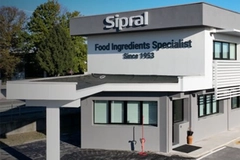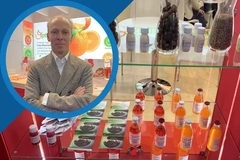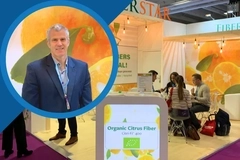
- Industry news
Industry news
- Category news
Category news
- Reports
- Key trends
- Multimedia
- Journal
- Events
- Suppliers
- Home
- Industry news
Industry news
- Category news
Category news
- Reports
- Key trends
- Multimedia
- Events
- Suppliers
Beyond The Headlines: Prinova expands Latin American presence, Bühler talks AI for sustainable solutions

This week in industry news, Prinova acquired a Brazilian distributor to expand its global presence, and Bühler discussed using AI to accelerate sustainability solutions. Meanwhile, Coca-Cola rolled out watermelon-flavored beverages in time for summer, and US-based Ecovative netted US$11 million to expand its mycelium-based meat alternative production.
Business highlights
Ingredients and premix supplier Prinova acquired Brazilian ingredients distributor Aplinova to advance its global expansion efforts. Aplinova provides specialty ingredients for the F&B, supplements, and personal care industries and is currently focusing on natural flavors, customizations for health and wellness, and solutions for sugar reduction. Prinova has liquid and dry premix manufacturing facilities in the UK, China, and the US and has significantly increased its footprint in Latin America in recent years.
Ecovative, a New York-based company, secured US$11 million in funding to expand its mycelium-based alt-meat production and packaging line. Its MyBacon product is claimed to be formulated using organic mycelium, salt, sugar, coconut oil and natural flavors. The firm leverages a patented solid state fermentation process that is claimed to be less capital intensive with simple downstream processing steps. The company is also planning to introduce a complimentary pork product besides bacon and expand into foodservice later this year.
 Start-ups and investors discussed AI’s role in optimizing alt-protein and dairy production at Bühler’s sustainability summit (Image credit: Bühler).
Start-ups and investors discussed AI’s role in optimizing alt-protein and dairy production at Bühler’s sustainability summit (Image credit: Bühler).
Sustainability highlights
Bühler and Dutch-based climate tech venture capital fund Icos Capital hosted the “Accelerating Sustainability Summit” in Switzerland to connect biotech start-ups, investors, and industry leaders to speed up sustainable solutions using artificial intelligence (AI). The event encouraged collaborations between start-ups and established corporations to drive innovations in food tech, decarbonization, and sustainability. The summit highlighted the role of AI in optimizing production in alternative proteins and dairy, and data quality for GenAI models.
GNT said it has crossed the halfway mark in its mission to reduce carbon intensity at its Exberry color factories by 50% over the course of the current decade. Based on volume of product sold, the company cut carbon emissions at its production sites in the Netherlands, Germany, and the US by 26% between 2020 and 2024. The color supplier highlighted improved water efficiency at its factories by 30% compared to 2020 and commitment to ensuring that its contract farmers growing fruits, vegetables, and plants for its natural colors enroll in sustainable agriculture training programs.
Launches and innovation
Coca-Cola Europacific Partners (CCEP) unveiled a watermelon variant for its Absolut Vodka and Sprite beverages, which it calls its first-ever flavor innovation. Watermelon was chosen for its vibrant, juicy profile that complements the brand’s existing range while offering refreshing drinks for consumers in time for summer. CCEP says its consumer testing revealed purchase intent of 84% for the products, with a majority of UK consumers saying they could enjoy more than two drinks in one session.
Specialist flavor house I.T.S unveiled a range of natural fruit flavour mixes for creating Radlers, which are lighter, lower alcohol beers popular in the US and Canada. Brewers can make up the super-concentrated mix with water (40% water to 10% mix) and add to 50% of a brewed beer base, either an existing or new recipe. The resulting beer has a not-too-sweet fruity flavor and an ABV of nearly 2%. The Radler flavour mixes are available in lemon, passionfruit, peach, grapefruit, dark fruits, and watermelon flavors.
CSM Ingredients launched Egg ’n Easy Plus, a sustainable egg alternative which it says is cost-effective, high-quality, and can be used in yeast dough and batter applications. The plant-based, fully customizable powder ingredient allows to cut up to 100% of whole eggs in brioche recipes and up to 50% in cakes and muffins. According to the company, switching from free-range eggs to the egg substitute can lower egg-related costs by up to 55%.
 Tecnológico de Monterrey used a combination of yeasts and bacteria to convert the lactose in whey into protein (Image credit: Tecnológico de Monterrey).Researchers at Mexican university Tecnológico de Monterrey partnered with the Technical University of Denmark to develop a method to convert industrial cheese byproduct whey into a sustainable protein source. The team used microbial communities in a precision fermentation process to produce single-cell protein without depending on genetically modified organisms. The technique is hailed as a potential solution to both food security and environmental challenges, since whey often ends up in waterways, contributing to pollution and nutrient overload that can lead to ecological disruptions.
Tecnológico de Monterrey used a combination of yeasts and bacteria to convert the lactose in whey into protein (Image credit: Tecnológico de Monterrey).Researchers at Mexican university Tecnológico de Monterrey partnered with the Technical University of Denmark to develop a method to convert industrial cheese byproduct whey into a sustainable protein source. The team used microbial communities in a precision fermentation process to produce single-cell protein without depending on genetically modified organisms. The technique is hailed as a potential solution to both food security and environmental challenges, since whey often ends up in waterways, contributing to pollution and nutrient overload that can lead to ecological disruptions.
Scientists at the Max Planck Institute for Polymer Research, Germany and University of Southern Denmark developed a foie gras substitute without force-feeding, a practice heavily criticized due to animal welfare concerns. The team used the duck’s own enzymes (lipases), which naturally break down fat in the body. This method helped the fat reform into large crystals, creating the same texture found in traditional foie gras. The team has applied for a patent for the recipe and is looking to collaborate with companies and sensory experts to improve its flavor and aroma. The results are published in the journal Physics of Fluids.

















